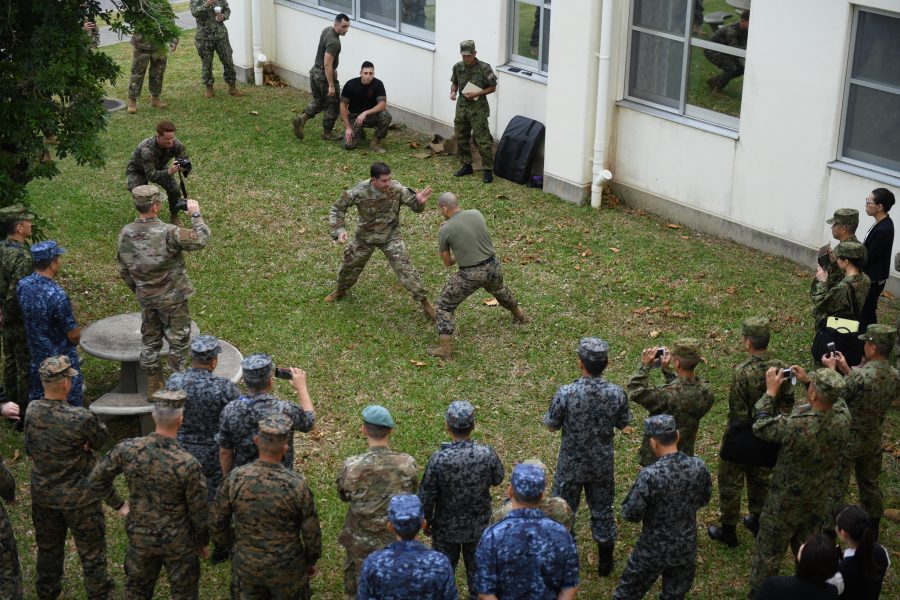KADENA AB, Japan—American troops in Japan must “train as hard as we can” and continue to strengthen joint and bilateral relationships to be able to oppose a potential threat from China, the US Forces Japan command senior enlisted leader told other leaders at a symposium here this week.
Though Japan has “a lot of bad neighbors,” including Russia and North Korea, Navy CMSgt. Rick Winegardner said he believes China is the US’ biggest competitor.
Speaking at the Joint Bilateral Senior Enlisted Leader Symposium, Winegardner said that 40 years ago, 90 percent of the Chinese population lived on less than $2 a day. Today, that number is just 10 percent.
“Forty years is not that far. Where are they going to be 40 years from now?” he asked rhetorically.
Dealing with the “seemingly unstoppable China accelerating towards being a world superpower” is a “challenge that will shape our world,” Winegardner said.
“Do I actually think that tomorrow, that the US and China will go to war together? I don’t,” he noted. “But when we talk about the neighborhood, when we talk about North Korea, when we talk about Taiwan, when we talk about Hong Kong, how do those things affect our relationship? How do they affect our alliance? What would happen if any one of those was a flash point? And keep in mind, World War I was not started by England and Germany. World War I was started by an assassination in Austria.”
Lt. Gen. Kevin Schneider, commander of USFJ, said the challenge posed by China is “more than what is happening every day in the Senkaku [Islands, in the East China Sea].
“It is the militarization of the South China Sea, one of the most vital economic arteries anywhere in the world, it is the malign or negative aspects of [China’s global development strategy, known as] One Belt One Road, and the predatory economic practices that go along with that. It is the establishment of almost vassal state bilateral relationships that go along with One Belt One Road. And it’s the trampling of sovereignty, economic transparency, and human rights that we see every day,” Schneider explained.
“We have to have forces that are able to win without fighting. And, … if there is a fight, then we have to win,” he added.
To do that, Winegardner said, the US must strengthen its relationships in the Pacific, and also make sure troops are not just ready, but also well trained.
“Everybody is always ready, they’re excited, they’re motivated. And there’s a difference between that and actually being trained to go,” he explained. “It’s no different than if I wanted to go play a professional sport. I might want to play really bad, and I’m excited to play, but if I don’t have the skills and the training to get me there, I’m going to get creamed when I walk out onto the field.”
As for interoperability, Winegardner said it isn’t enough to “just say that we have allies and partners. … If we’re not working with them, if we don’t know how to communicate with them, if we don’t know how to fight on the side of them, that’s where I think we’re going to have problems.”
Other senior enlisted leaders at the symposium agreed in comments after Winegardner’s presentation.
Marine Sgt. Maj. Dennis Bradley of 3rd Marine Division noted that during the recent Talisman Saber exercise in Australia, the US, Australian, and Japanese forces on their own individual ships were able to communicate well on unclassified channels, but had problems with classified communication, which would be very problematic if the countries ever went to war together.
CMSgt. Brian Kruzelnick, command chief master sergeant for 5th Air Force, said America’s strength is in its relationships, and that China “doesn’t have any friends.”
“In
this area, if deterrence doesn’t work and we were pushed to war, we
need to leverage all partners … to be successful,” he added.

